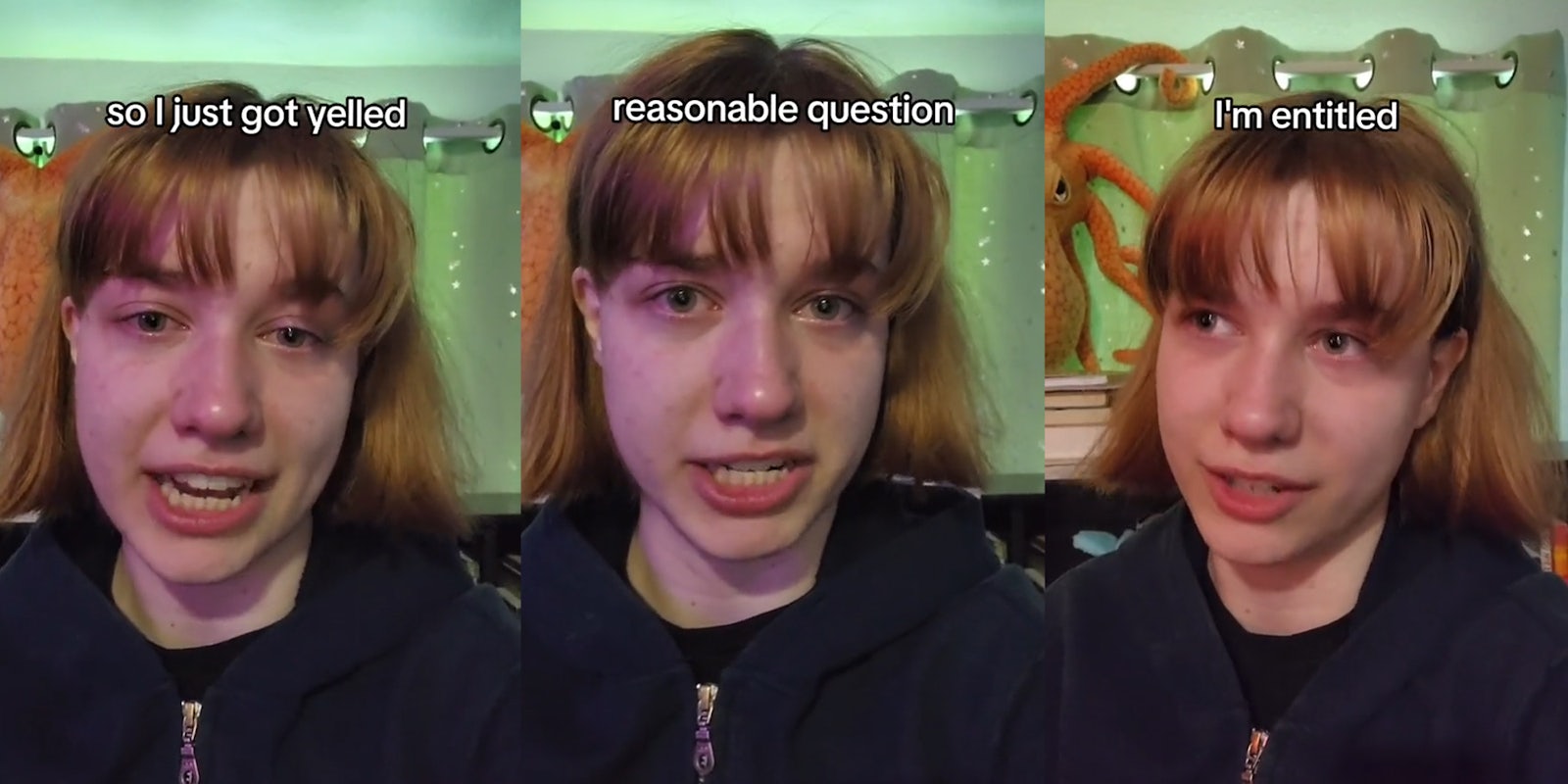A user’s clip on TikTok has gone viral and sparked backlash after she shared a story in which she asked for a job to accommodate her “time blindness.”
In a video with over 3.2 million views as of Sunday, TikTok user Sarah Trefren (@chaotic_philosopher) says that she questioned whether a job would accommodate her “time blindness.”
“I just got yelled at for asking a very reasonable question,” she says in the video. “I’m applying to go somewhere, and I just wanted to know, are there accommodations for people who struggle with time blindness and being on time?”
@chaotic_philosopher I’m tired of workers’ rights not being prioritized in this country. And we’re entitled for suggesting it should be different… I don’t think so. #workersrights #employeerights #workers #capitalismsucks #capitalism #thesystemisbroken #fyp ♬ original sound – ♻️🌎Chaotic Philosopher♾️🇺🇸
“Then the person I was with interrupted and acted like I was asking something else. And then, when we were done, they actually started yelling at me and saying that accommodations for time blindness doesn’t exist, and if you struggle with being on time, you’ll never be able to get a job,” Trefren continues. “You know, provided you’re trying your absolute best to be there.”
The conversation she’s referencing then shifted into a discussion about the contemporary American workplace, with Trefren’s conversation partner claiming that the TikToker’s generation wanted to “destroy the workplace.”
“And yeah, I think that a culture where workers are just cut off because they struggle with being on time when there’s other solutions that we can look to—I think that just, anybody who thinks it’s OK to just treat people like that? Yeah, that culture needs to be dismantled,” she states.
For context, “time blindness” is a documented phenomenon that can happen to everyone, not just people with neurological disorders such as attention-deficit/hyperactivity disorder (ADHD) or autism spectrum disorder.
“Everybody has time blindness at times,” pediatric behavioral health specialist Michael Manos, Ph.D tells the Cleveland Clinic. “We all can get caught up in something and get ‘in the zone.’ Some people with ADHD, though, are more prone to having difficulty being able to judge how long something will take to do or to lose track of time.”
While workers with ADHD and other neurological disorders can approach their employers asking for reasonable accommodations, most expert advice related to time blindness puts the responsibility of these accommodations on the worker rather than the workplace.
For example, the Attention Deficit Disorder Association, or ADDA, has a website full of ways in which an employee with ADHD can work with their employer to improve their performance.
These include asking the employer that they be allowed to use “earphones for listening to music or white noise” during work, “striving to shorten the time allowed on a project to better utilize ‘sprinting abilities,’” and “asking a supervisor to set deadlines for tasks and hold you accountable.”
The site also suggests seeking out jobs that are project-based rather than time-based, or finding work that can accommodate flexible scheduling.
However, a majority of the advice related to time blindness and scheduling issues, in general, put the onus on the worker. Some examples provided by ADDA include “using a day planner that you carry with you,” “using notifications (such as alarms on your computer or devices),” and “scheduling travel time to meetings and appointments and setting alerts taking them into account in your electronic calendar.”
This emphasis on worker responsibility may be one of the reasons why TikTokers were quick to attack Trefren’s video in the comments section.
“I have terrible time blindness too but it’s not anyone else’s problem but my own honestly,” a user wrote. “Some problems need accountability instead of accommodation.”
“I struggle with time blindness so I accommodate myself by showing up 30 min early,” another offered.
“Honestly something to go over with your therapist. It is ultimately your responsibility (coming from someone who struggles with the same thing),” shared a third.
Trefren later responded to this discussion in a follow-up video.
@chaotic_philosopher One of my main takeaways since being named the time blindness girl. Political polarization is more of a threat than we could ever know. #politicalpolarization #politics #political #timeblindness #timeblindnessgirl #timeblindnesstiktok #fyp #trending #usa ♬ original sound – ♻️🌎Chaotic Philosopher♾️🇺🇸
In this video, Trefren says going viral taught her about the dangers of the modern internet.
“We hear about algorithms, political radicalization, and how the Internet is influencing humans, and we think, ‘Oh, OK,’” she says. “But then when it happens to you, you see how big of a problem it is.”
“Because we can no longer have a civil discussion about a video with very little context, it makes you wonder, is there even a future for our nation? And what future is there to fight for?” she asks. “Because arousing mass amounts of hate, judging people, making mass assumptions, and being stuck in a cognitive loop without even knowing it, and then doing exactly what the algorithms want is seen as normal.”
“But you know what?” she concludes. “It doesn’t have to be.”
TikTokers seemed largely confused by this response, with many in comments choosing to focus on the points brought up in the original time blindness video.
“I have ADHD and will literally be late for work if I don’t set an alarm to remind me to leave. So, I set an alarm!!!” exclaimed a commenter.
“…Just as I teach my students with disabilities…you have to use the interventions taught…alarm clocks, written schedules, text reminders about time, peers,” detailed a further user. “If elementary students with ADHD that have trouble with time (including my own son who is 13) can do it. You can.”
The Daily Dot reached out to Trefren via email.



